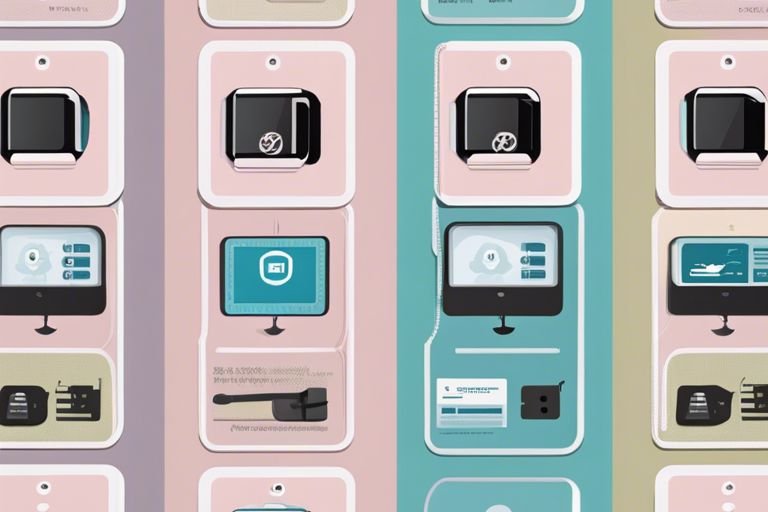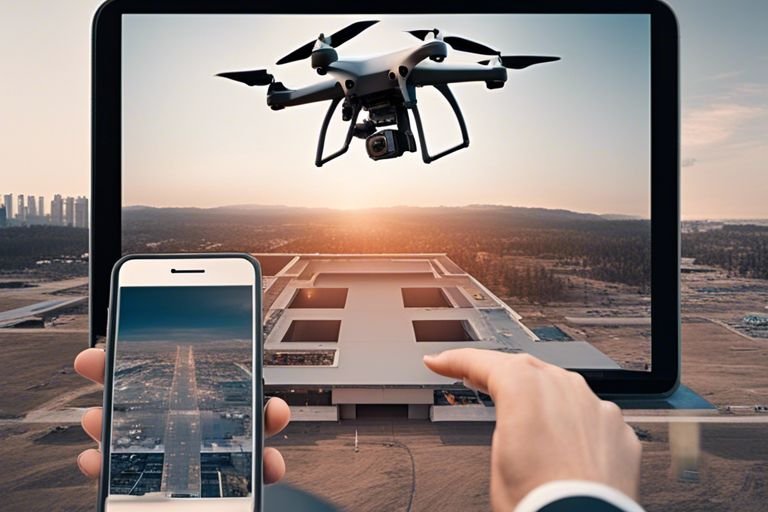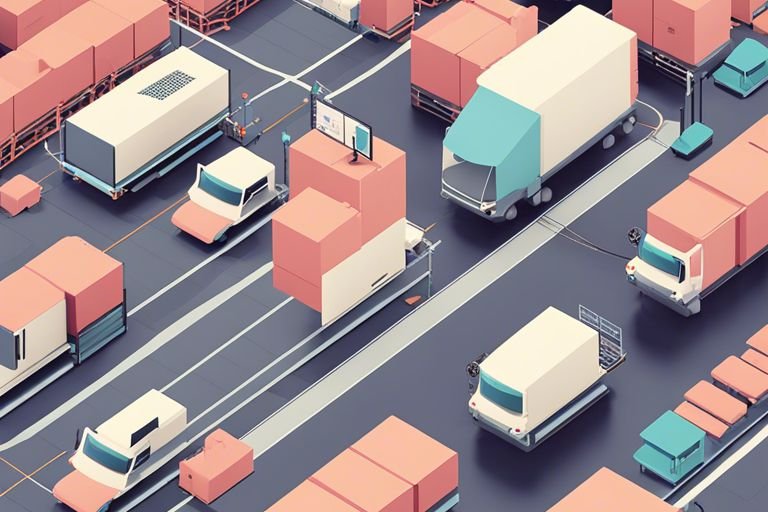What Are the Ethical Considerations of IoT Data Collection?

Ethical considerations surrounding the collection of data from Internet of Things (IoT) devices have become increasingly prevalent in our digital age. As the use of IoT technology continues to grow, it is crucial to carefully examine the ethical implications of collecting, storing, and utilizing the vast amounts of data generated. This blog post will explore the ethical concerns surrounding IoT data collection, including issues of privacy, consent, and the potential for misuse of personal information. By shedding light on these ethical considerations, we can better understand the impact of IoT data collection and work towards responsible and transparent practices in the digital realm.
Privacy Concerns
For companies and individuals alike, the collection of data via IoT devices raises significant privacy concerns. The vast amount of personal information that can be gathered and analyzed brings into question the potential for invasion of privacy and misuse of sensitive data.
Informed Consent in Data Collection
On the one hand, the concept of informed consent becomes increasingly complex in the realm of IoT data collection. With the constant stream of data being collected from various sources, it can be difficult for individuals to fully understand and consent to the ways in which their information is being used and shared. Companies must ensure that their data collection methods are transparent, and that individuals have the opportunity to make informed decisions about the use of their personal data.
Data Security and Privacy Risks
Data security and privacy risks are also a prevalent concern in the realm of IoT data collection. As more devices become connected, the potential for unauthorized access, data breaches, and misuse of information grows. Companies must prioritize the implementation of robust security measures to protect the personal data being collected and stored. Additionally, encryption and data anonymization can help mitigate the risks associated with data collection and storage.
To address these concerns, companies must prioritize the implementation of robust security measures to protect the personal data being collected. Encryption and data anonymization are essential tools in mitigating the risks associated with data collection and storage. By prioritizing these measures, companies can uphold ethical standards in their use of IoT data collection.

Data Ownership and Control
Any organization that collects data through Internet of Things (IoT) devices must consider the ethical implications of data ownership and control. This is particularly important when it comes to the data collected from individuals, as it raises questions about who owns the data and has the right to control its use.
User Autonomy and Data Rights
Control over personal data is a fundamental aspect of user autonomy and data rights. Users should have the right to know what data is being collected about them, how it is being used, and the ability to consent to its collection and use. Additionally, they should have the right to access and correct their data, as well as the ability to revoke consent and have their data deleted. Without these rights, users risk losing control over their personal information and being subjected to privacy violations.
Corporate Responsibilities and Transparency
Control of data extends to corporate responsibilities and transparency. Companies that collect IoT data have a responsibility to be transparent about their data collection practices and to use the data in ways that are ethical and respectful of user privacy. This includes being clear about what data is being collected, how it is being used, and who it is being shared with. Transparency also extends to the security measures in place to protect the data from unauthorized access and breaches. Companies that take on the role of data stewardship must prioritize the protection and ethical use of the data they collect.
Ownership and control of IoT data must be approached with a sense of responsibility and transparency, in order to uphold user autonomy and data rights. It is crucial for organizations to establish clear policies and practices for data ownership and control, and to prioritize the ethical use and protection of the data they collect. By doing so, they can build trust with users and ensure that IoT data collection is carried out in a responsible and respectful manner.
Impact on Society
Keep
With the rise of IoT data collection, there are significant implications for society as a whole. One of the most pressing concerns is the potential exacerbation of the digital divide and issues of accessibility. Additionally, there are socioeconomic implications to consider, as data collection practices may disproportionately impact certain communities and individuals.
The Digital Divide and Accessibility
With the increased reliance on IoT devices for everyday tasks and activities, there is a growing concern about the digital divide and accessibility. Those who do not have access to the necessary technology or resources may be left behind, further widening the gap between the digitally literate and those who are not. Moreover, issues of accessibility for individuals with disabilities must be taken into account, as IoT data collection may inadvertently exclude or marginalize certain populations.
Socioeconomic Implications of Data Collection Practices
Accessibility to IoT devices and the internet is not equitable across all socioeconomic groups, leading to disparities in data collection practices. It is essential to recognize that the impact of data collection can be felt more acutely by those in lower-income brackets or marginalized communities. This can perpetuate existing social and economic inequalities, further entrenching divisions within society. It is crucial to address these disparities to ensure fair and ethical data collection practices that benefit all members of society.
Regulatory Landscape
To effectively address the ethical considerations of IoT data collection, it is crucial to understand the regulatory landscape that governs this data collection. Various existing legal frameworks and international standards play a significant role in shaping the regulatory environment for IoT data collection.
Existing Legal Frameworks
An integral part of the regulatory landscape for IoT data collection is the existing legal frameworks at the national and regional levels. These frameworks encompass laws and regulations that govern data privacy, data protection, consumer rights, and security. For example, the General Data Protection Regulation (GDPR) in the European Union and the California Consumer Privacy Act (CCPA) in the United States provide legal requirements and guidelines for the collection, processing, and storage of personal data obtained through IoT devices. These legal frameworks aim to safeguard the rights and privacy of individuals while also imposing accountability on organizations that collect and utilize IoT data.
The Role of International Standards and Guidelines
Role The role of international standards and guidelines is essential in establishing a unified approach to IoT data collection and ensuring ethical practices. International organizations such as the International Organization for Standardization (ISO) and the Institute of Electrical and Electronics Engineers (IEEE) develop standards and guidelines that address the ethical, privacy, and security implications of IoT data collection. These standards serve as a reference for organizations to adhere to best practices and compliance with ethical considerations in the collection, processing, and management of IoT data. They also facilitate interoperability and harmonization of ethical principles on a global scale.
Guidelines Therefore, compliance with international standards and guidelines not only promotes ethical data collection practices but also enhances the trust and confidence of individuals and stakeholders in the IoT ecosystem. Incorporating these standards and guidelines into regulatory frameworks can contribute to the development of a more ethical and sustainable approach to IoT data collection, ensuring that the rights and interests of individuals are upheld while fostering innovation and technological advancement.
Conclusion
So, it is clear that the ethical considerations of IoT data collection are of utmost importance in the rapidly evolving digital landscape. As the IoT continues to grow and expand into every aspect of our lives, it is crucial for individuals, organizations, and policymakers to carefully consider the implications of collecting and utilizing this data. Issues such as privacy, consent, and data security must be at the forefront of any IoT data collection effort to ensure that the rights and autonomy of individuals are respected and protected. By approaching IoT data collection with a strong ethical framework, we can harness the power of this technology while also upholding the values and rights of the individuals whose data is being collected.



